

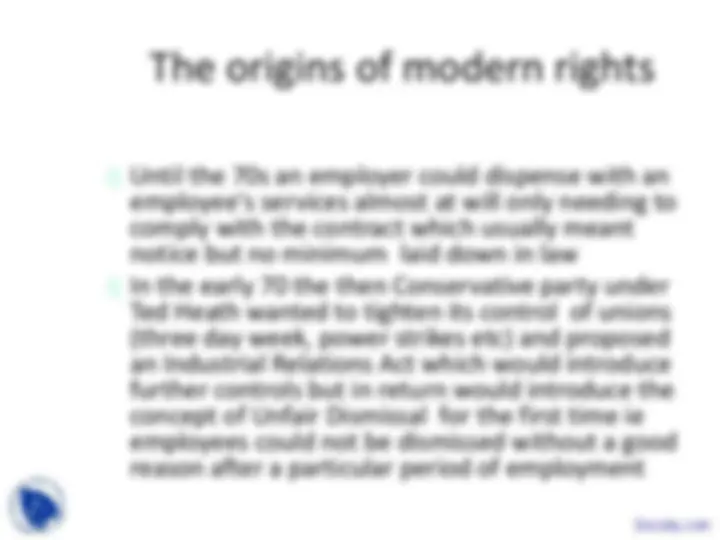




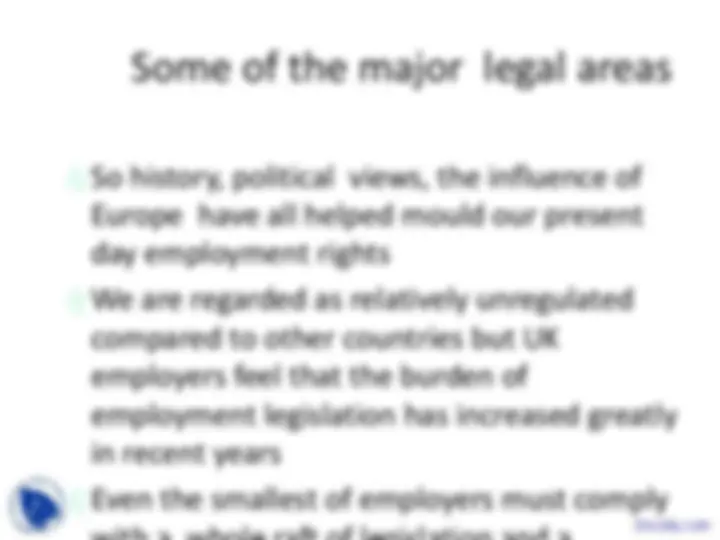


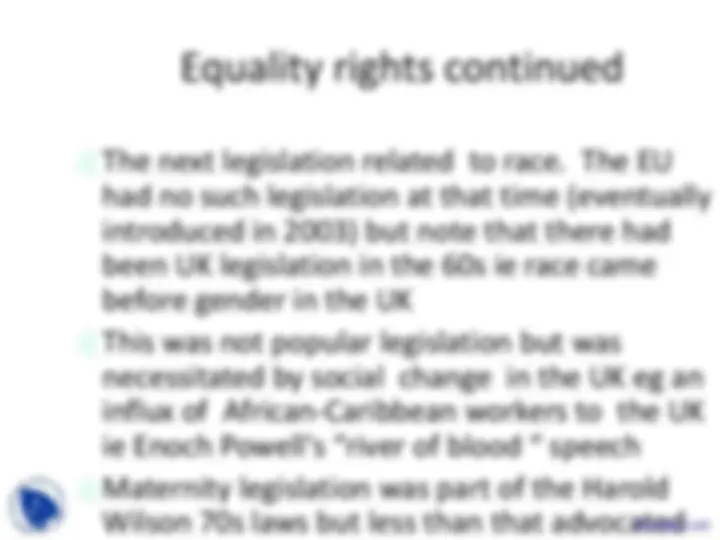
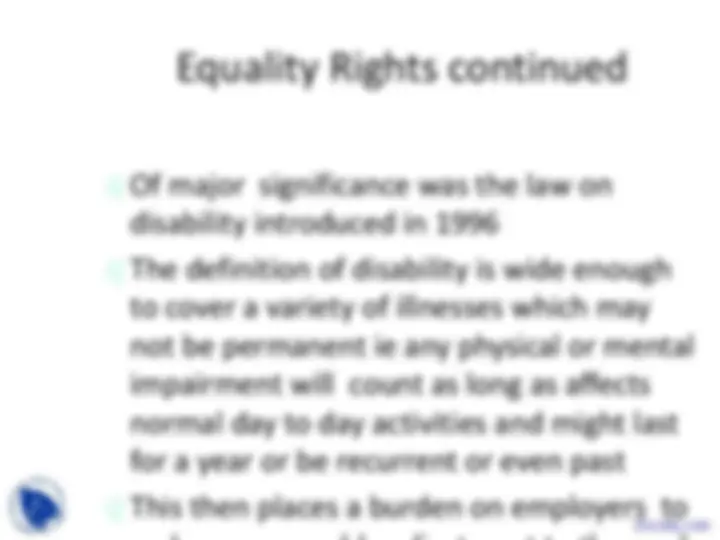


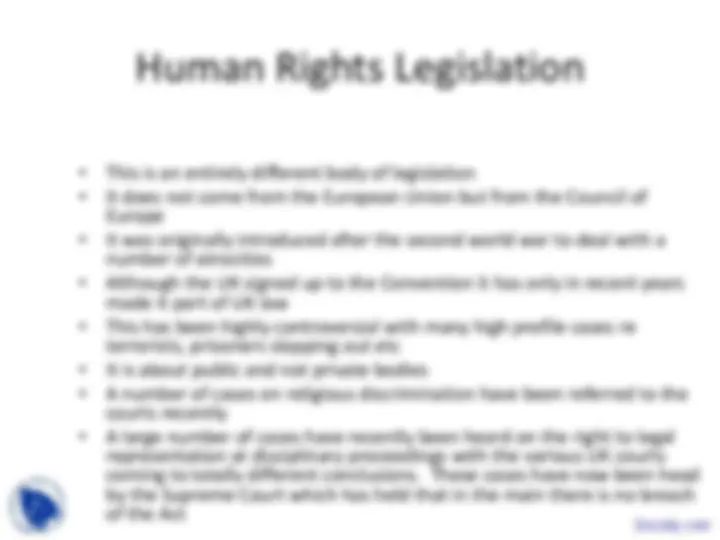

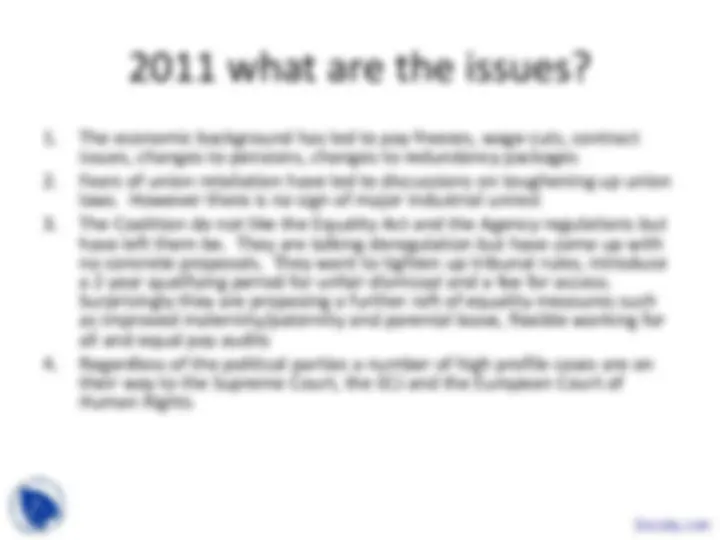
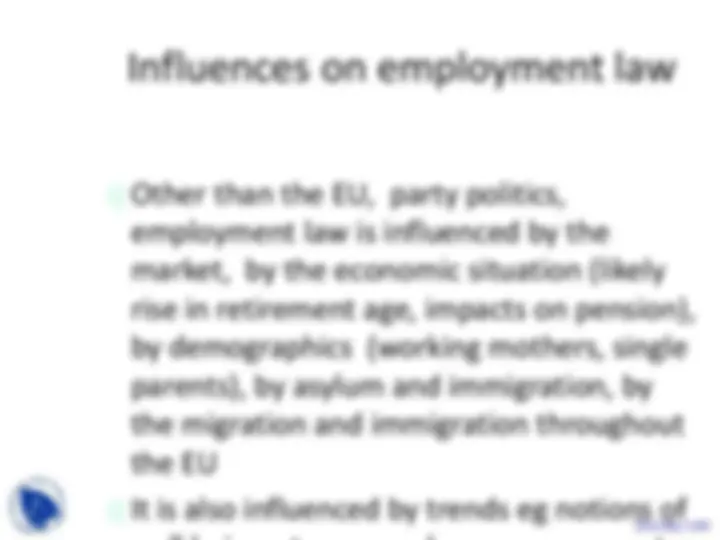

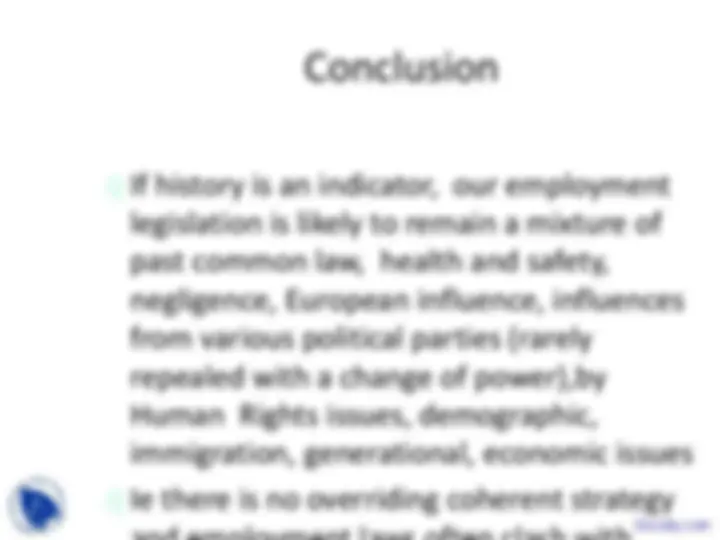


Study with the several resources on Docsity

Earn points by helping other students or get them with a premium plan


Prepare for your exams
Study with the several resources on Docsity

Earn points to download
Earn points by helping other students or get them with a premium plan
Community
Ask the community for help and clear up your study doubts
Discover the best universities in your country according to Docsity users
Free resources
Download our free guides on studying techniques, anxiety management strategies, and thesis advice from Docsity tutors
In the social legislation we study these key concepts:Employment Law, Originated, Rights, Saw Legislation, Industrial Revolution, Developed, Union or Members, Eventually, Immunities, Trade Dispute
Typology: Slides
1 / 27

This page cannot be seen from the preview
Don't miss anything!




















Employment law is relatively modern in relation to many other areas of law
Most rights originated in the 70s
Prior to that the 1800s saw legislation on the Factories Act to control excesses from the industrial revolution
At that time also laws developed on trade unions but based on control of unions not protection of union or members as these were seen to be contrary to the maxim “an Englishman's home is his castle” ie his workplace was also his to do with as he wished
However laws on trade union eventually provided limited protection where action was on the grounds of a trade dispute
Not a right to strike but immunities in certain situations
Much of what was proposed later was not liked by the UK and therefore vetoed affecting everyone
By the time Mrs Thatcher came to power she inherited the Acquired Rights Directive agreed by the outgoing labour party under Callaghan but so disapproved that the resulting TUPE regulations in the UK were so badly drafted that we paid the penalty for a long time
During her “reign” the Single European Act was adopted (she agreed to it!)
This provided that social legislation on the grounds of health and safety could be adopted by qualified majority QMV – we had a good reputation for health and safety legislation
However she was not so happy when the first directive to be adopted was the Pregnant Worker's directive – in her eyes not about health and safety
It is irrelevant which country takes the case to the ECJ, the result affects all and is binding trumping domestic law It is not necessary to take a case through all the lower courts, any can send a case to the ECJ Once decided the case will normally come back to the UK for the domestic courts to make a decision Recent examples include a decision in Heyday that the default retirement age of 65 is capable of being justified, the UK courts held that the Government could justify it In two cases on holidays the ECJ has decided that individuals continue to accrue holidays whilst off sick and if sick whilst on holiday can reschedule to another time – a later case appears to contradict this. Further cases on transfers are in the pipeline. The government is currently consulting on how to implement this in the UK These cases take some time to be resolved but can have major ramifications for employers
In 2003 EU laws on religion and sexual orientation were introduced – these two clash see Ladele
This has led to a reference to the European Court of Human Rights
The Commission for Equality and Human Rights has intervened recognising the problems caused by clashing rights
In 2006 laws on age discrimination were introduced
As a result of these laws, linked to changes in demographics, the default retirement age of 65 was scrapped
It is now discriminatory to make someone retire at any age unless there is justification which may be hard to prove
However the ECJ appears to suggest that there may be justifications for retiring in certain professions